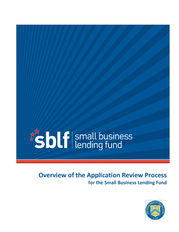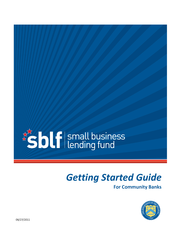Findings from Focus Groups of LMI Youth Regarding Saving and Spending
U.S. Department of the Treasury
Description
10) They don’t like the idea of borrowing money. When asked if they borrow
money, a clear majority indicated “no” and stated that borrowing puts them in
a negative situation. They did not want to feel in somebody's debt or have
someone remind them that they owed money.
Providing a Solution
While many of the participants knew that saving money was important and had positive benefits, many
were unable to save. In order to help these young workers save effectively, America Saves is working
with SYEP to provide the same opportunity that adults have to save successfully – utilizing direct deposit
to automatically deposit money into a savings account.
America Saves knows that the most successful savers save automatically – whether through direct
deposit into a savings account, an automatic transfer from checking to savings, or an automatic transfer
to a work-sponsored retirement plan.
The America Saves First-Time Worker Initiative works with SYEP’s to educate young workers about the importance of saving, using direct deposit to split a portion of their pay into a savings account, and to provide safe financial products where youth can deposit their money. Learn more about this initiative at http://americasaves.org/organizations/current-initiatives/first-timeworkers America Saves, a campaign managed by the nonprofit Consumer Federation of America, seeks to motivate, encourage, and support low- to moderate-income households to save money, reduce debt, and build wealth. The research-based campaign uses the principles of behavioral economics and social marketing to change behavior. Nonprofit, government, and corporate groups participate in America Saves nationally and through local, regional, and statewide campaigns around the country.
America Saves encourages individuals to take the America Saves pledge and organizations to promote savings year-round and during America Saves Week. .
The America Saves First-Time Worker Initiative works with SYEP’s to educate young workers about the importance of saving, using direct deposit to split a portion of their pay into a savings account, and to provide safe financial products where youth can deposit their money. Learn more about this initiative at http://americasaves.org/organizations/current-initiatives/first-timeworkers America Saves, a campaign managed by the nonprofit Consumer Federation of America, seeks to motivate, encourage, and support low- to moderate-income households to save money, reduce debt, and build wealth. The research-based campaign uses the principles of behavioral economics and social marketing to change behavior. Nonprofit, government, and corporate groups participate in America Saves nationally and through local, regional, and statewide campaigns around the country.
America Saves encourages individuals to take the America Saves pledge and organizations to promote savings year-round and during America Saves Week. .
Personal Finance Presentations
+
Personal Finance Sub Categories
U.S. Department of the Treasury













